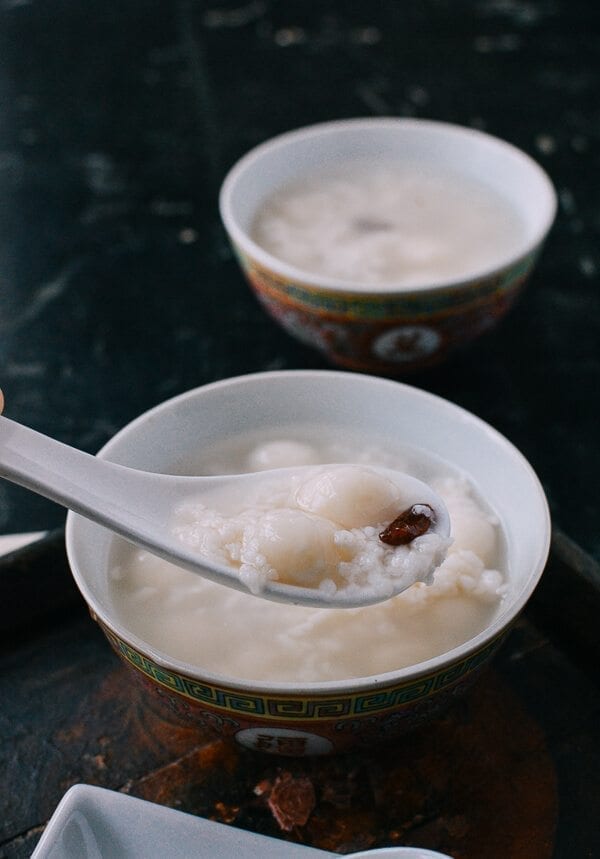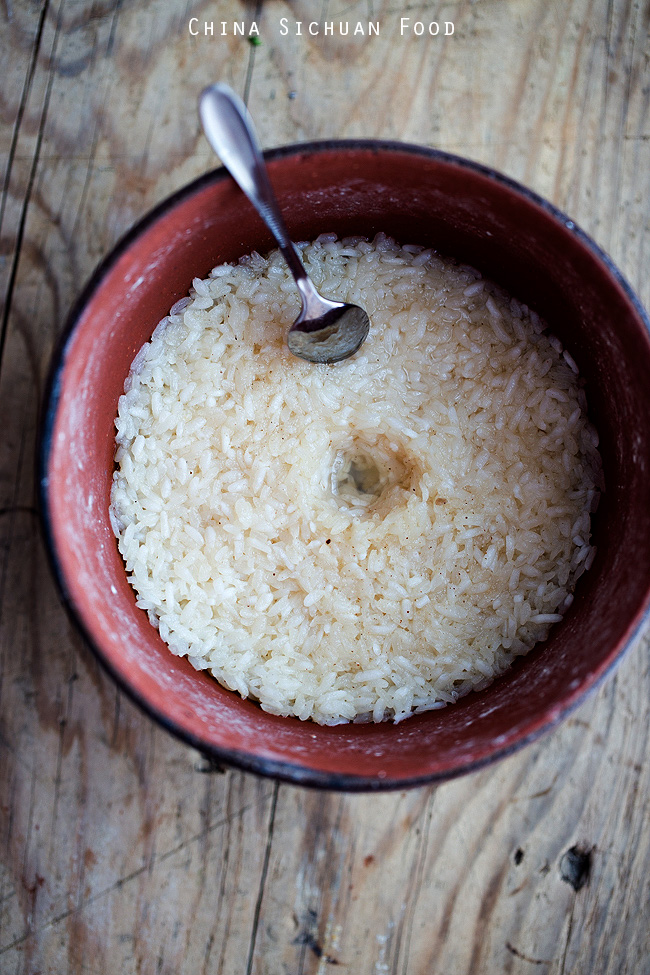Jiuniang
jiu niang, 酒酿, 甜酒釀
Jiuniang is a sweet, soup- or pudding-like dish in Chinese cuisine. It is also known as sweet wine or sweet rice wine. It consists of a mixture of partially digested rice grains floating in a sweet saccharified liquid, with small amounts of alcohol and lactic acid (0.5%). It is made by fermenting glutinous rice with a starter called jiuqu containing Rhizopus oryzae or Aspergillus oryzae and often yeast and bacteria. It was first developed as a by-product of mijiu production and generally speaking is partially digested rice from a young rice wine (or vinegar) ferment. If eaten quickly or held at 10 degrees or less, which halts the fermentation, the product can be consumed as jiuniang. If the temperatures are raised and fermentation continues, jiuniang will eventually produce rice wine or rice vinegar. Jiuniang is most commonly made and consumed in the winter, where fermentation can be halted easily.
Source: Wikipedia


